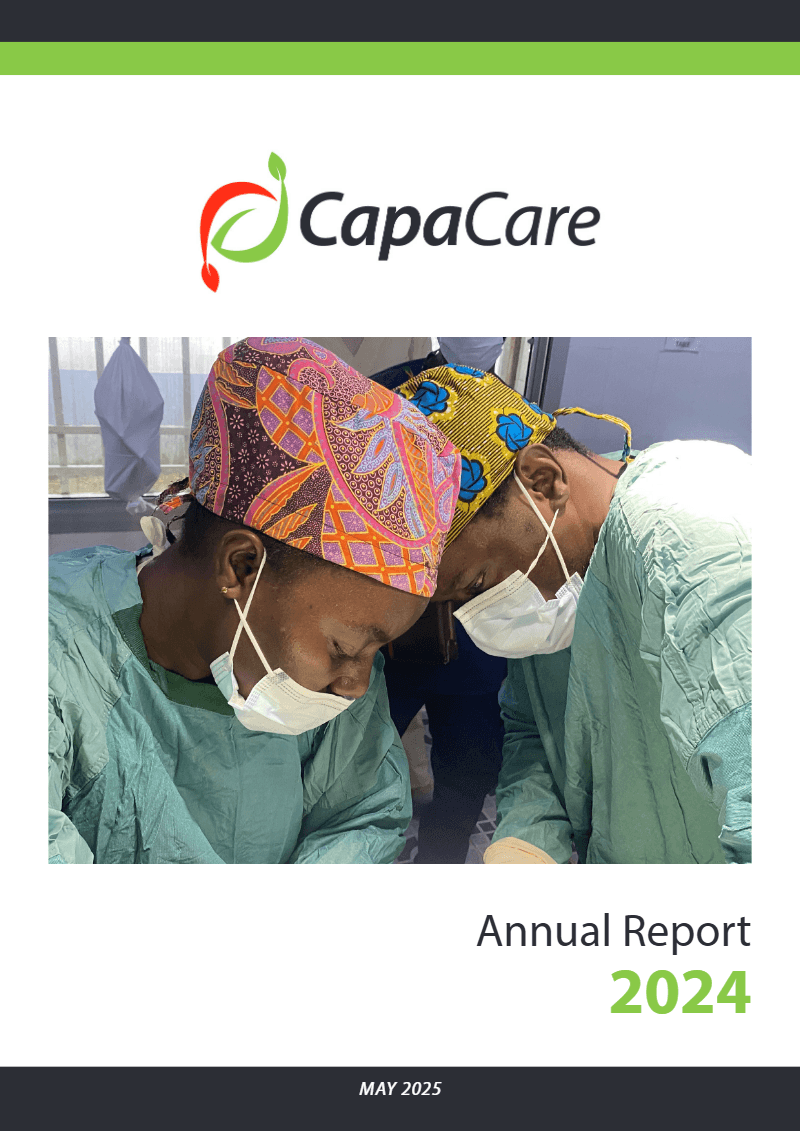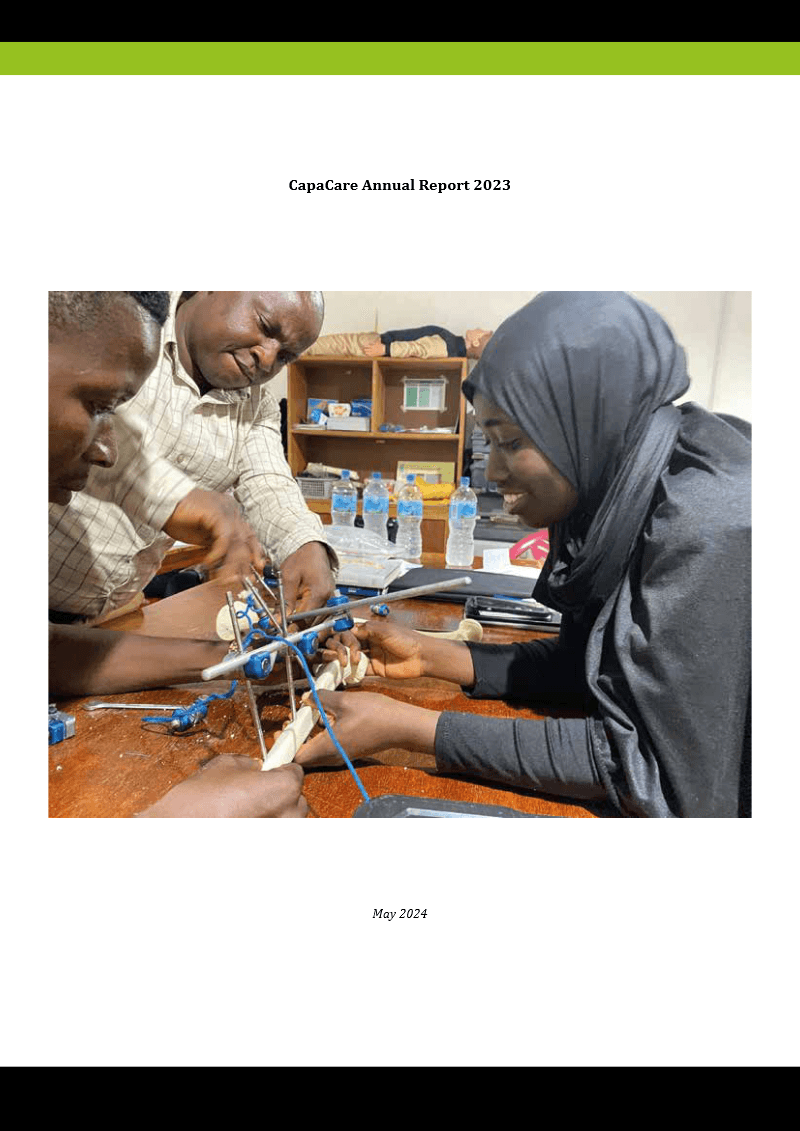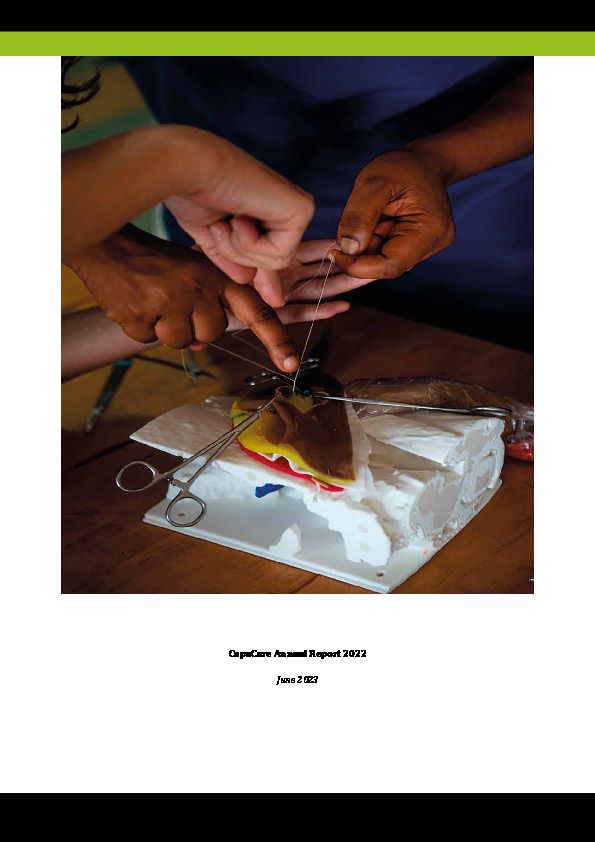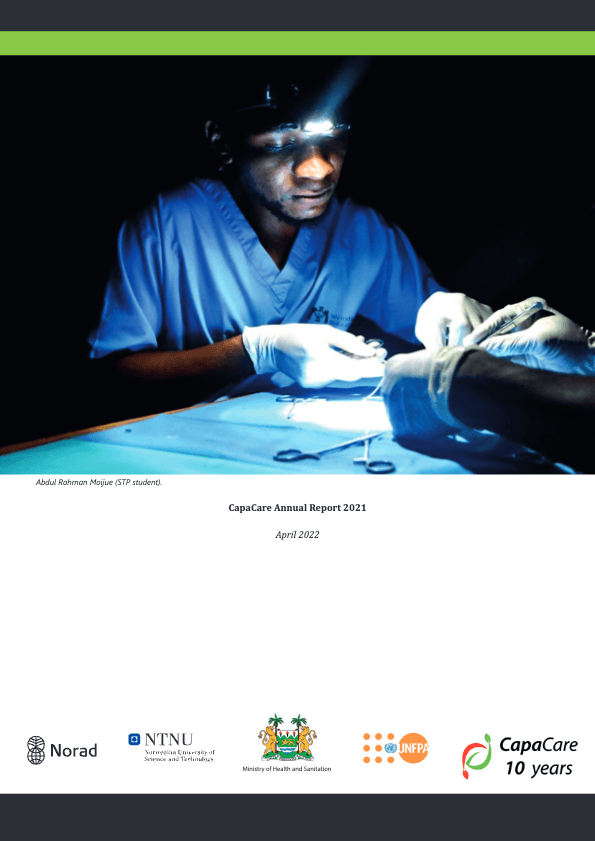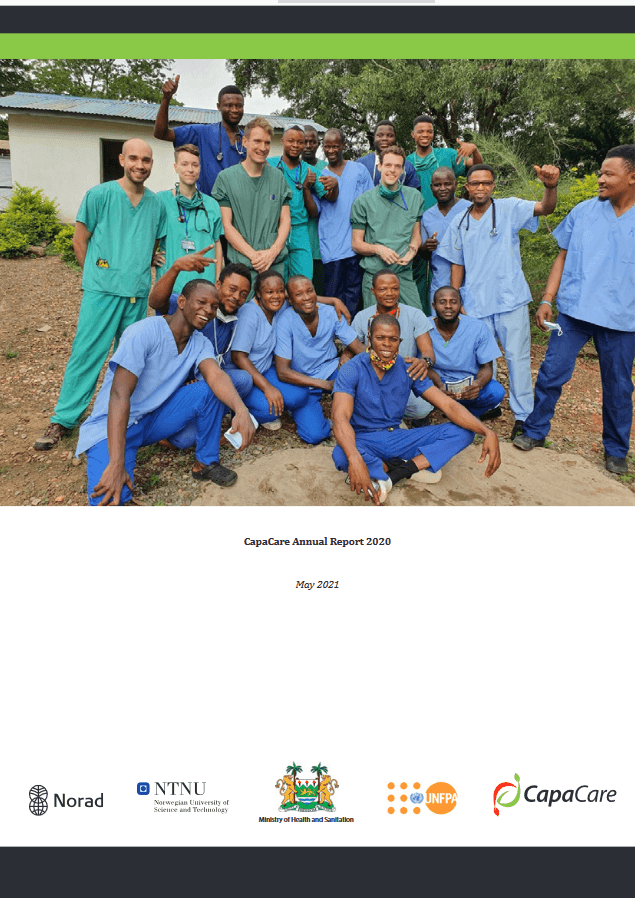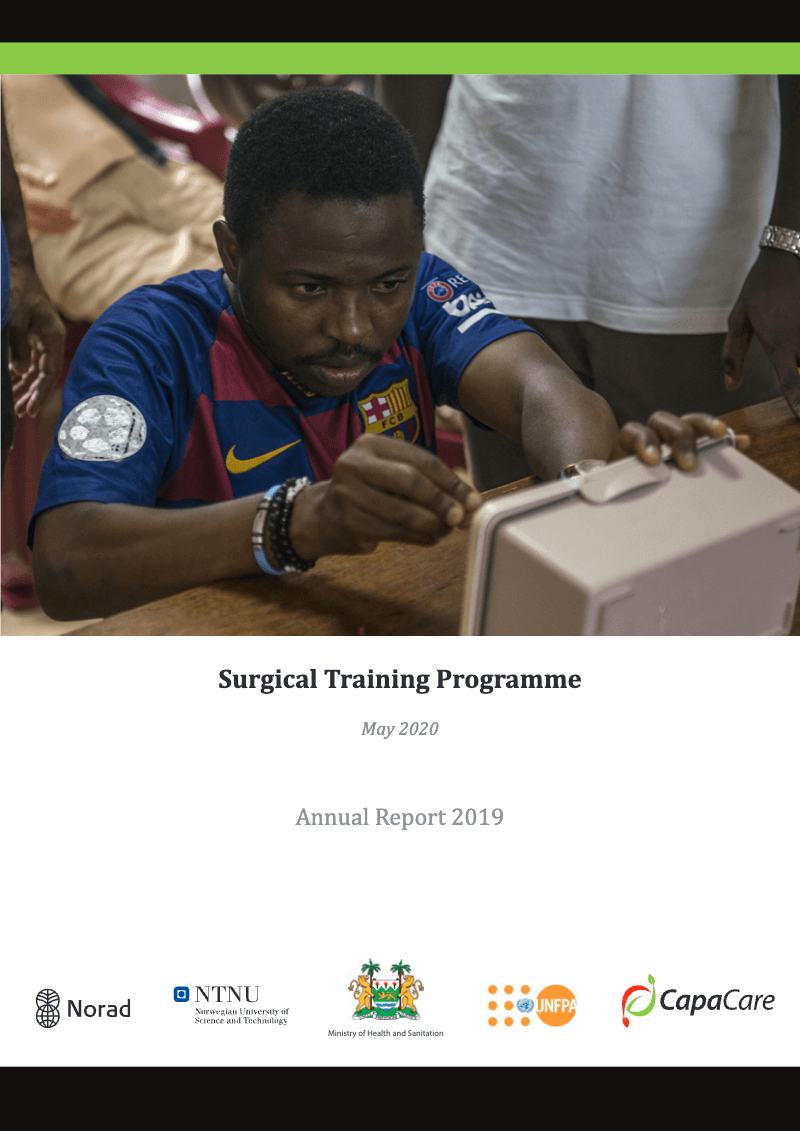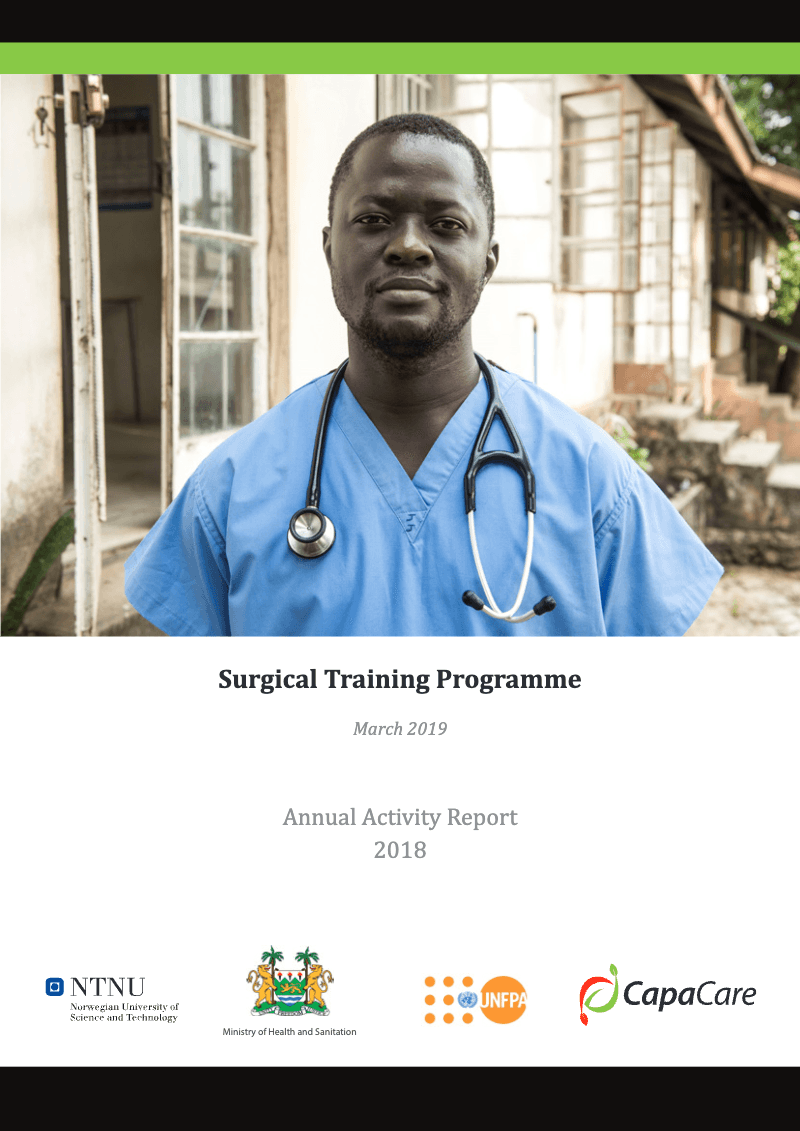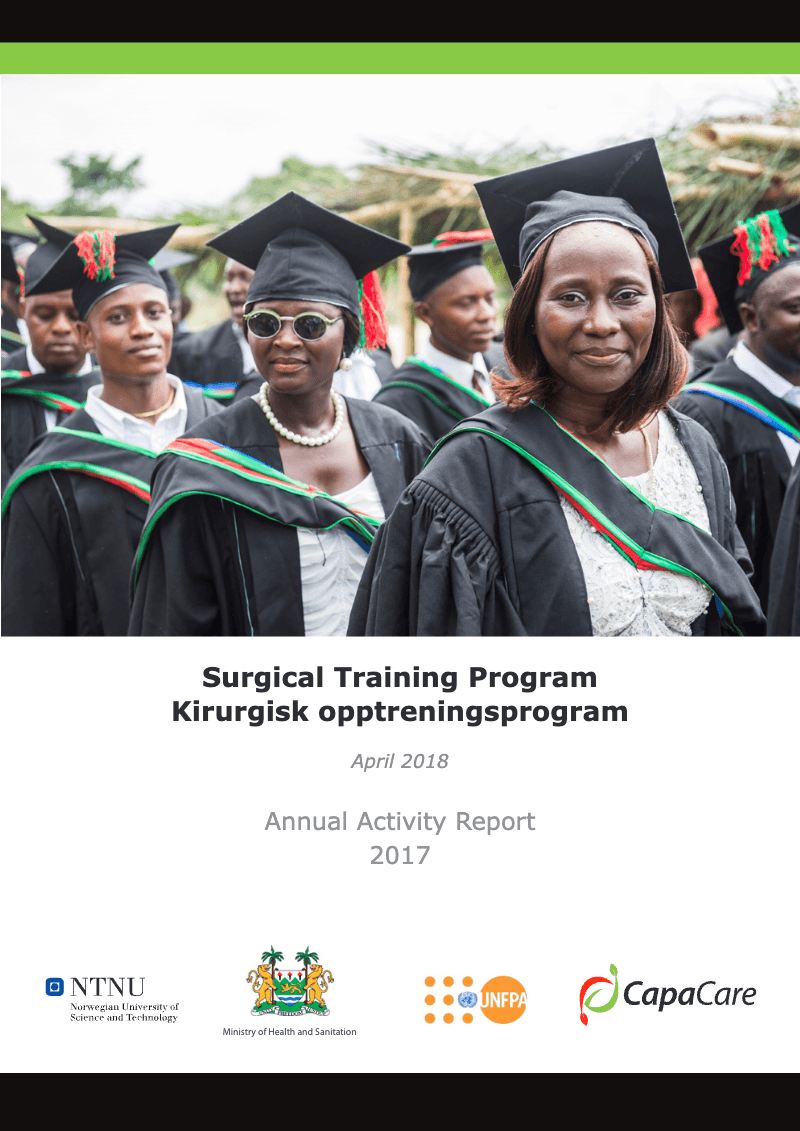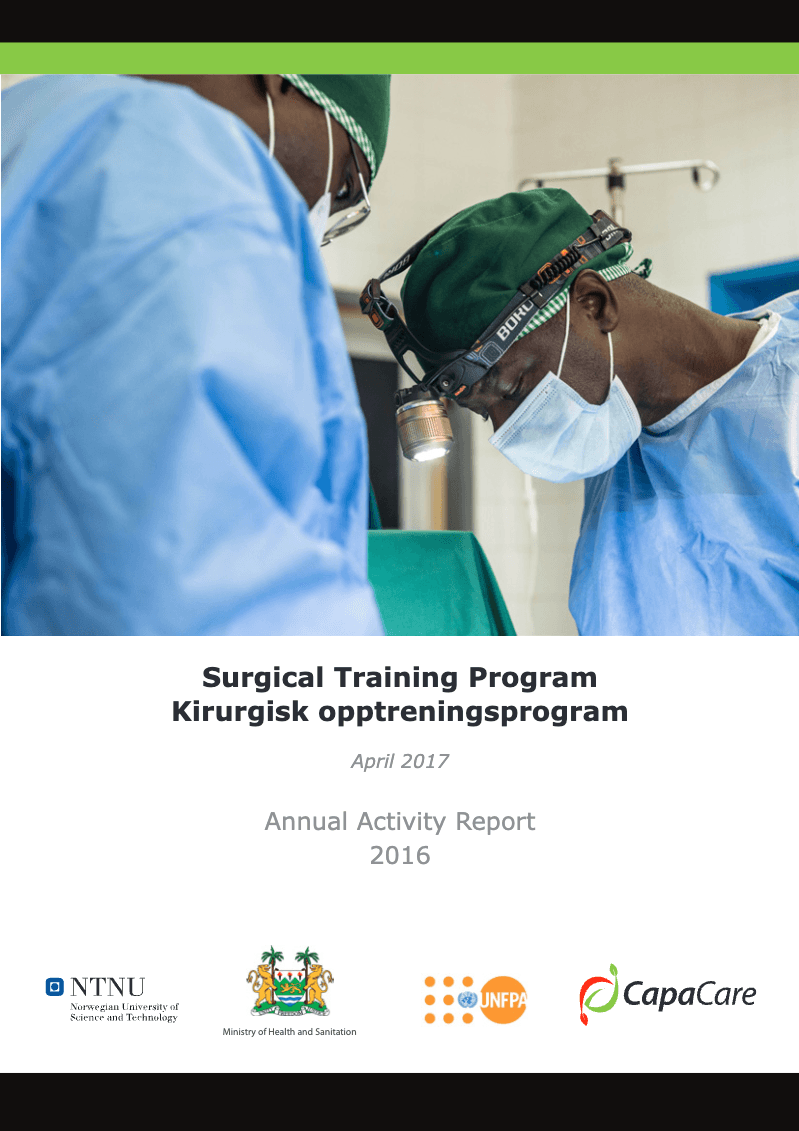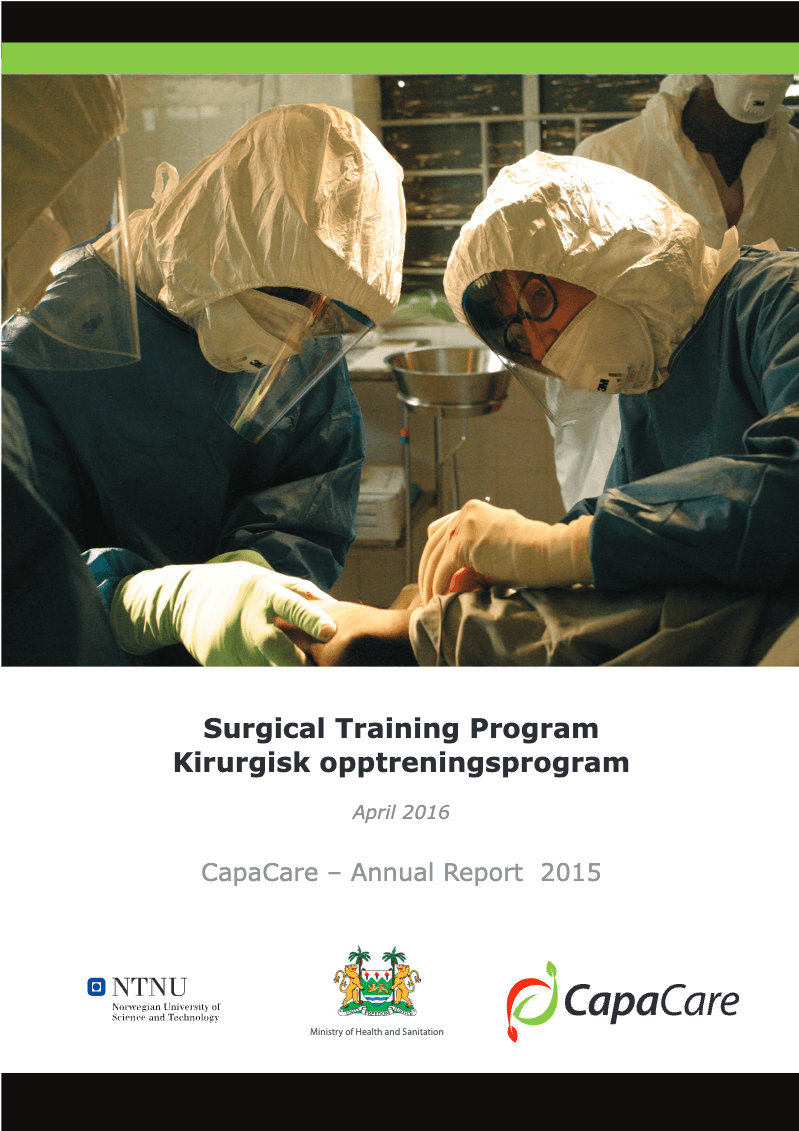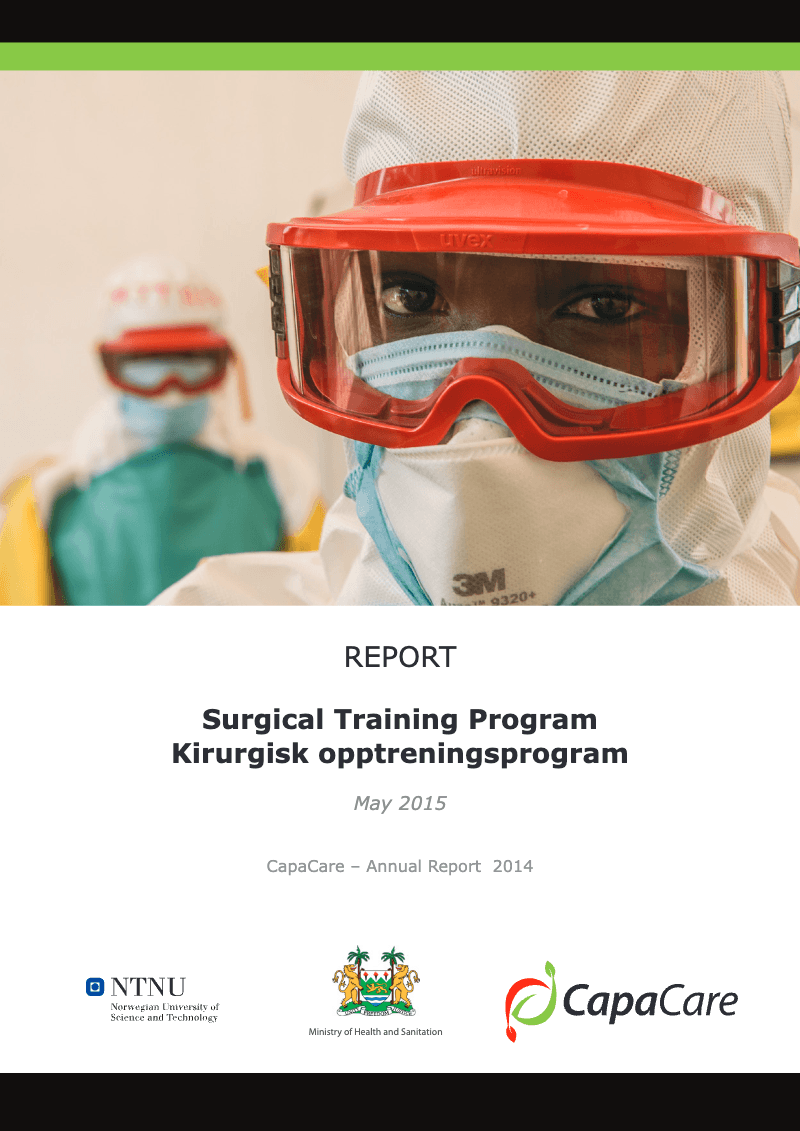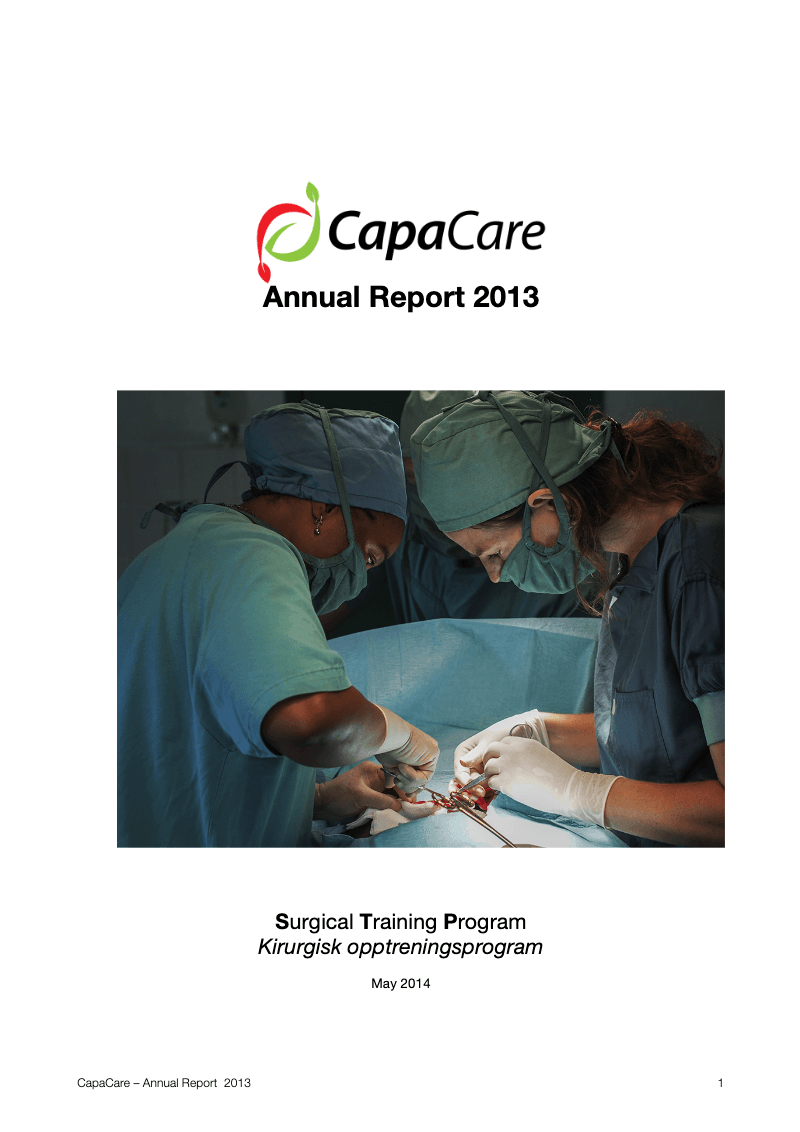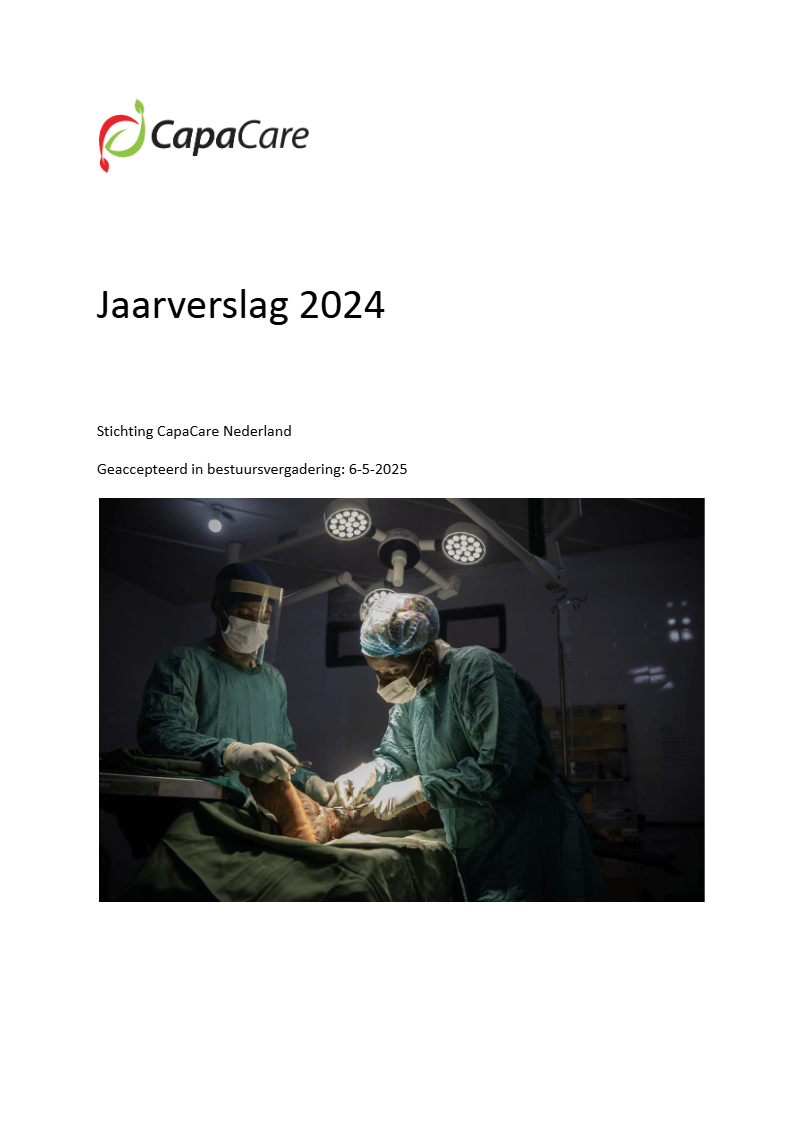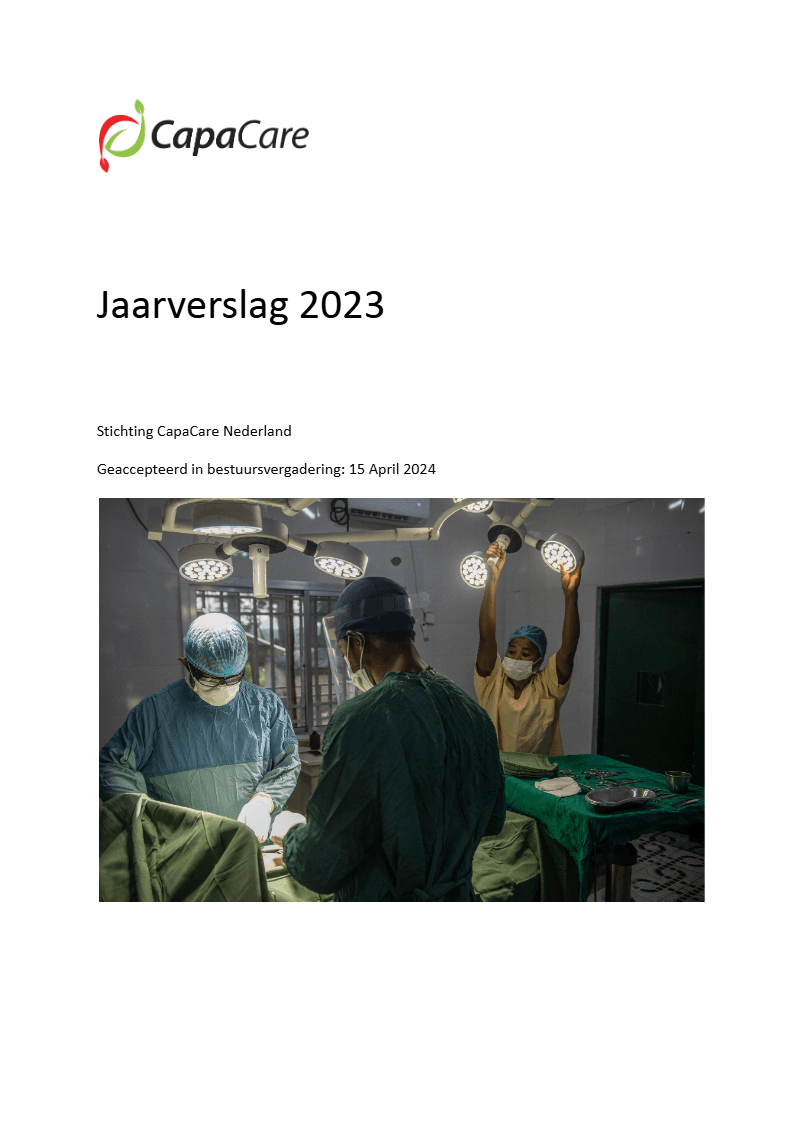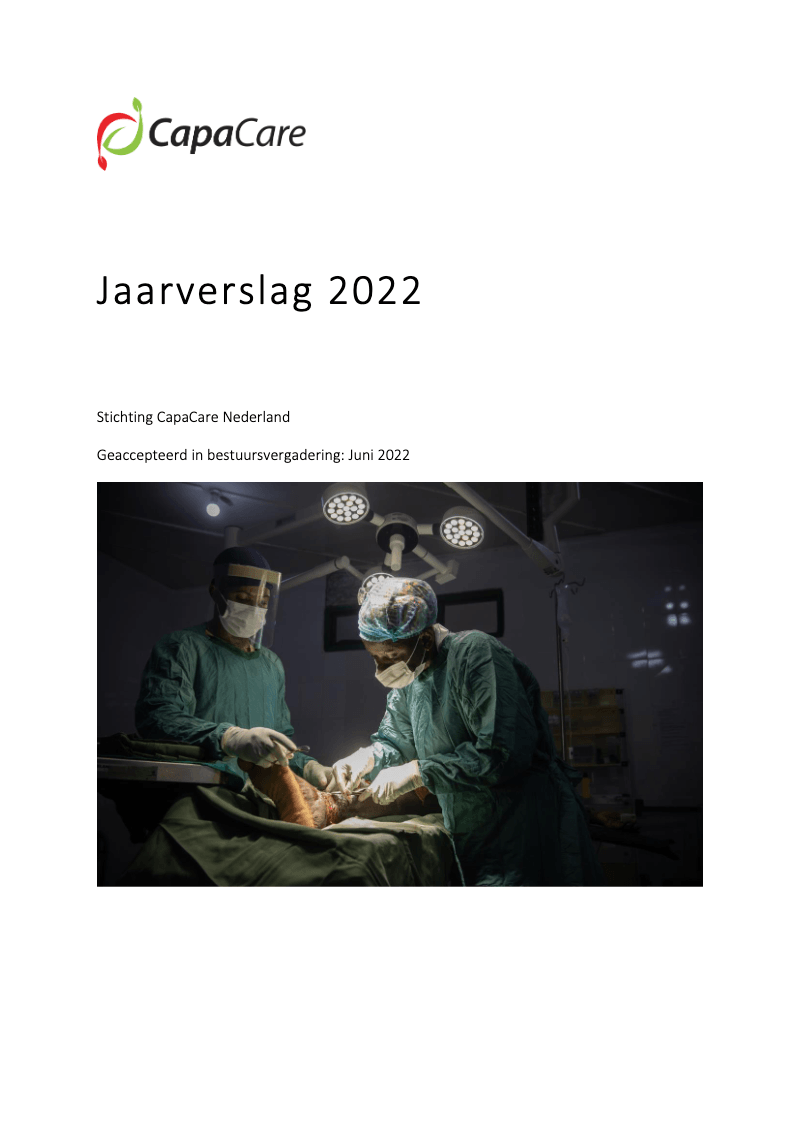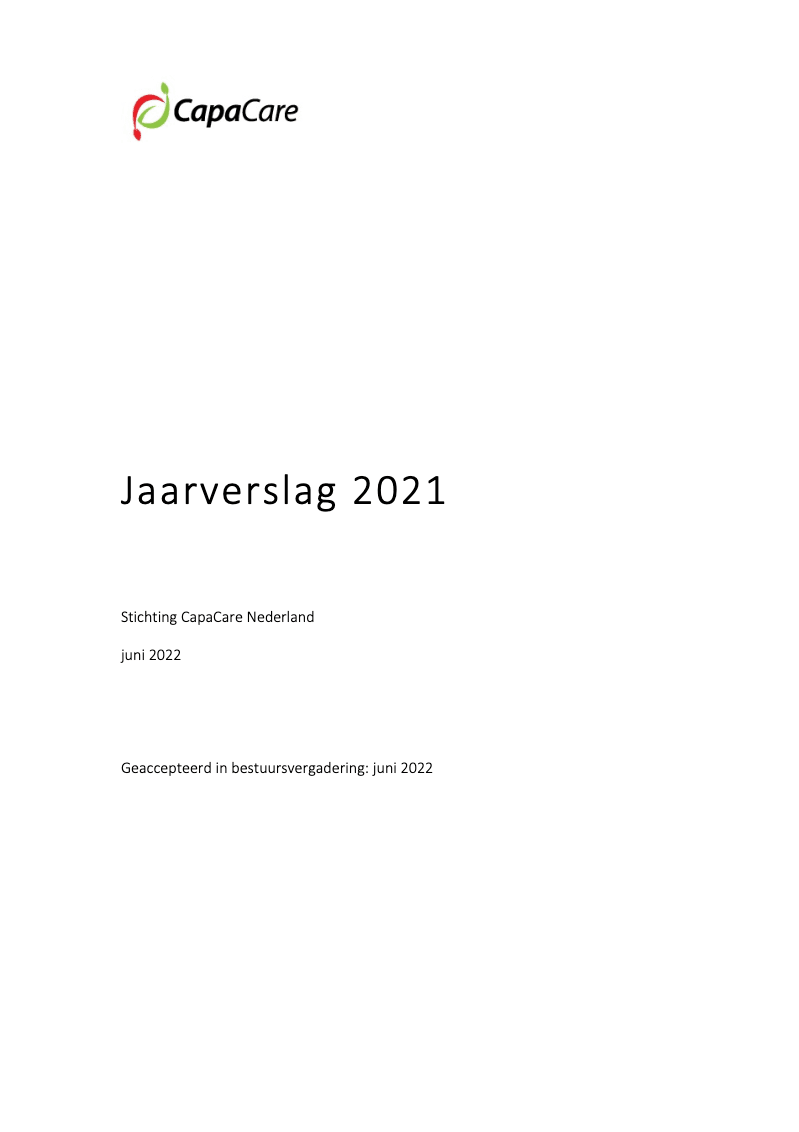We Are A Non Profit
CapaCare is a non-profit humanitarian organisation dedicated to medical education and training in the Global South.


Vision & Mission
CapaCare is a dynamic International Non-Governmental Organisation with a focus on medical training and research in underserved and hard-to-reach populations. We believe that skilled health professionals are crucial for sustainable health systems.
Vision
Quality healthcare for all.
Mission
Contributing to sustainable healthcare systems through medical capacity building and research in underserved populations.
Values and guiding principles
- Collaboration: We collaborate with local authorities, national and international partners.
- Quality: We use international and up-to-date standards in all our trainings and research.
- Equity: We set priorities based on needs with a focus on rural and underserved populations.
- Research: We collaborate with academic institutions to evaluate and monitor healthcare developments in general and our project in specific.
- Sustainability: To be updated.
Our Chapters
CapaCare operates through independent country Chapters that manage our initiatives in their respective countries. Each Chapter is governed by its own country volunteer Board, ensuring tailored and effective local operations. Read more about our Chapters here.
CapaCare Sierra Leone
Sierra Leone in West Africa is still recovering from a brutal civil war that lasted from 1991 to 2002. The country was also severely hit by the West-African Ebola outbreak in 2014. Life expectancy at birth is 49 years, infant mortality and maternal mortality remain hight at 89 per 1000 live births and 857 per 100.000 live births, respectively.
Shortage of qualified professional health staff and limited capacities in training institutions are identified as key challenges in the health sector in Sierra Leone. In 2008 only 10 surgeons was working in the public sector to serve a population of 5.7 million people. The limited availability of surgical services in the country for the last decades, means that an estimated 25% of the population has an untreated surgical condition needing attention. A study also found that 25% of deaths was associated with a surgical condition that might have benefited from surgical care(Groen 2012).
In cooperation with Ministry of Health and Sanitation in Sierra Leone, Capacare is currently training Medical Doctors(MD) and Community Health Officers(CHO) to preform basic lifesaving surgery at district hospital level. This two year Postgraduate program hopes to contribute to address the unmet need for accessible and affordable surgical care within a short timeframe.
CapaCare Liberia
CapaCare Liberia was established to address the critical need for surgical and obstetric care in Liberia. Our journey began in 2016 when the Liberian Ministry of Health took an interest in our work, particularly our efforts in supporting surgical training in Sierra Leone. Recognising the potential benefits for Liberia, the Ministry invited us to explore similar possibilities within the country. As a first step, we participated in a nationwide surgical activity assessment to gain a comprehensive understanding of the current state of surgical care in Liberia. This assessment, completed in 2018, as well as a qualitative analysis of key stakeholders' perspectives on surgical task-sharing in Liberia, provided crucial insightsinto the situation. Building on these findings, CapaCare Liberia officially became the newest implementing Chapter of the organisation in 2021.
Our Mission: CapaCare Liberia is dedicated to improving access to essential and advanced surgical and obstetric care across the country. Our key activities include:
- We provide training in essential and advanced surgical and obstetric care, ensuring healthcare professionals are equipped with the skills they need to save lives. We focus our activities on the people and the regions where it is most needed, especially in rural areas. Learning new skills, as well as refreshing and updating skills through Continuing Professional Development courses, is essential for all health workers.
- We support the postgraduate training programmes in Surgery and Obstetrics & Gynecology (OBGYN), including rural rotations and focused, skills-based training courses. These courses cover a range of topics, from Basic Surgical Skills and Emergency Obstetric Care to specialised areas such as Paediatric Surgery and Surgical Oncology. We collaborate closely with the Liberia College of Physicians and Surgeons.
- Research: In partnership with local and international institutions, such as the Ministry of Health in Liberia, and the Norwegian University of Science and Technology (NTNU) in Trondheim, we focus on research to to inform the development of our programme, for example through a surgical training needs assessment, and to assess the impact of our training programmes.
- We believe in collaboration and partnership, and therefore work together with many Liberian and international partners.
Through these efforts, CapaCare Liberia is committed to strengthening the healthcare system and improving surgical outcomes in Liberia.
CapaCare Norway
CapaCare was founded by Norwegian doctors Håkon Bolkan and Brynulf Ystgaard in 2007 with the ambition of improving healthcare in rural Sierra Leone. Initially, the Norwegian board held the primary strategic responsibility. As CapaCare has evolved into an international organisation, the Norwegian activities have been gradually adjusted to fit within a larger framework led by CapaCare International. However, the Norwegian branch of the organisation continues to play a crucial role in funding, research, and development across the entire organsation, and works closely with the Norwegian University of Science and Technology (NTNU). CapaCare Norway is led by a Board of Directors, which meets regularly and consults with the International Board.
CapaCare Netherlands
In 2020, CapaCare Netherlands was established by Dutch Medical Doctors trained in global health that had worked for CapaCare in Sierra Leone. The team has since been strengthened with staff from other fields.
As many of CapaCare NL’s Board Members have had extensive on-the-ground experience in Sierra Leone and Liberia, CapaCare NL serves as a bridging entity between the West African and European members of the CapaCare community.
CapaCare NL has a supportive role in CapaCare’s Surgical Training Programme (STP) in Sierra Leone and in the postgraduate training in Liberia. We do so by guiding facilitators and trainers for the STP, including the organisation of debriefing sessions.
For postgraduates of the STP, we typically organise a yearly Continuing Professional Development (CPD) course. This can be on more advanced medical subjects such as vascular surgery, but also on paramedical subjects such as evidence based medicine and academic development.
We are closely involved with the expatriate doctors working in Sierra Leone and Liberia, offering peer-to-peer support.
CapaCare NL has a networking function bridging the international organisation with Dutch stakeholders, such as two of the Netherlands’ main Universities (University of Amsterdam and Utrecht University) and Dutch-based global health movements such as the Netherlands Society for International Surgery and the Safe Motherhood Group.
We collaborate with the Dutch Society of Surgery who are now, through CapaCare NL, hosting sustainable training on specialised surgical subjects for surgical residents in Liberia.
CapaCare NL assists the Wouter Nolet Foundation in the selection of participants for their scholarship grants, which can be used by Sierra Leonean healthcare workers to access the Surgical Training Programme.

